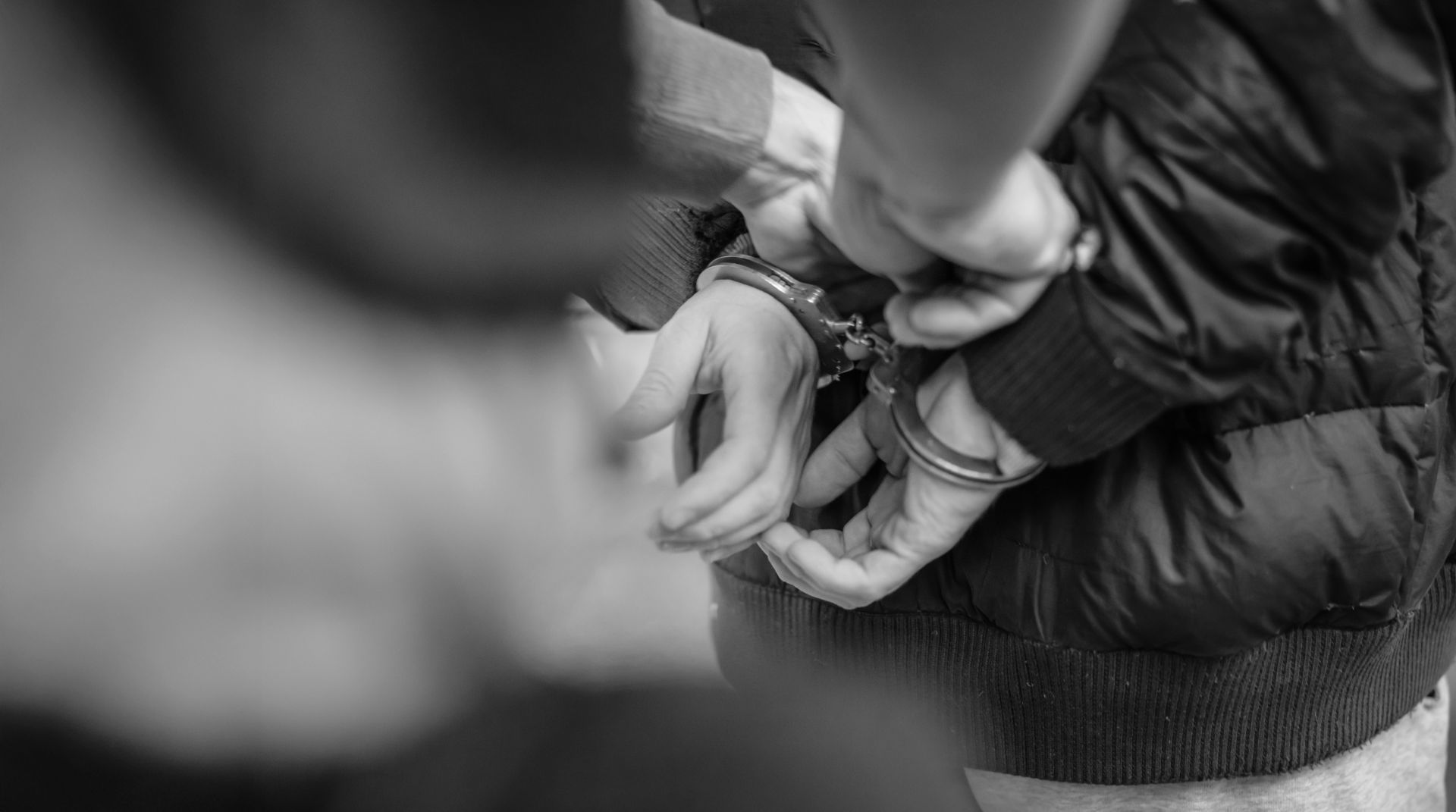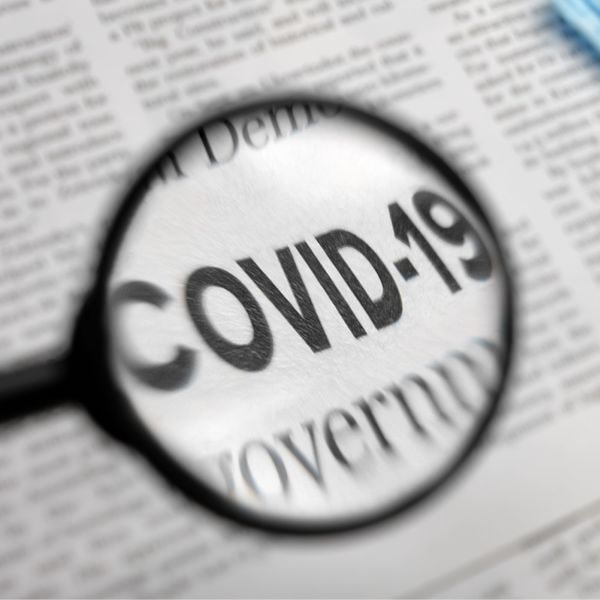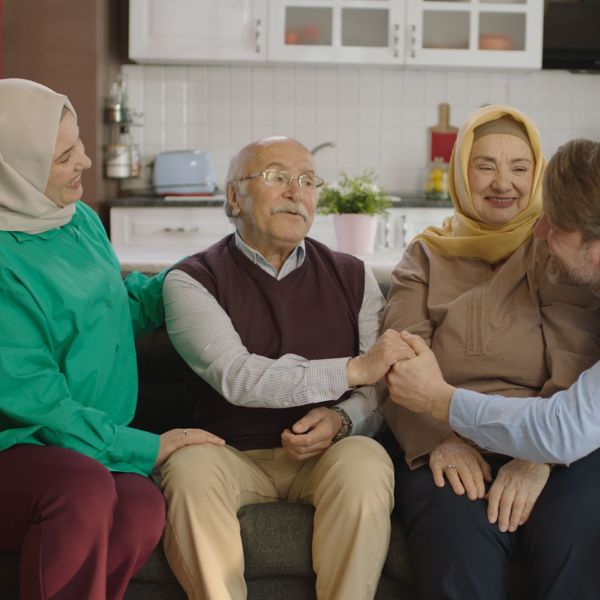
Civil liberties
Human rights are divided into civil rights, social rights and collective rights. Freedom rights include political and civil rights and are primarily rights of defense against state interference. They aim to secure the freedom and equality of individuals vis-à-vis the state.
Freedom rights include the right to life, liberty and security, freedom of religion, the prohibition of torture, protection against arbitrariness and the right to a fair trial. Freedom of expression and assembly, the right to vote and the rule of law are also included.
These rights are protected in Liechtenstein by the constitution, laws and international human rights conventions. They are enforceable.
International Covenant on Civil and Political Rights
Civil liberties, social rights, collective rights - humanrights.ch
University of Potsdam - MenschenRechtsZentrum - Human rights: indivisible and equally important?

Alicia Längle
Managing Director
Department for the Promotion of Human Rights
Restrictions on detention and freedom
The national prison in Liechtenstein is primarily a remand prison. However, certain forms of administrative detention (e.g. deportation detention) are also enforced. Internationally, the conditions of detention are examined by the Committee under the UN Convention against Torture (CAT) and by the Committee under the Council of Europe's Convention for the Prevention of Torture (CPT).
Domestically, the conditions of detention and the implementation of other forms of deprivation of liberty are regularly reviewed by the government's Prison Commission. The Commission also acts as the National Preventive Mechanism (NPM) under the UN Convention against Torture (CAT). In this function, it visits not only the national prison but also other institutions in which people are housed, such as care homes. Since the revision of the Social Welfare Act of 2020/21, the compulsory placement and measures to restrict the movement of people in care homes have been regulated by law and in accordance with the UN Convention on the Rights of Persons with Disabilities.
The reports of the Prison Service Commission and the NPM can be found in the government's accountability reports.
The VMR recommends: Liechtenstein should...
... embark on a strategic process to expand the national prison system in order to remedy deficiencies in infrastructure, education and employment opportunities;
... introduce rules on the right of children to have contact with parents in custody or pre-trial detention;
... check whether the guidelines for movement-restricting measures are implemented in all social institutions;
... create a legal basis for an independent complaints office for residents of care homes and social institutions and their relatives.
Welfare accommodation
Custodial placement (formerly compulsory hospitalization) is a very sensitive encroachment on the fundamental right to personal freedom. The number of involuntary placements in Liechtenstein has quadrupled in the last 20 years. The VMR has been documenting involuntary committal since 2018. 95% of all involuntary committals are carried out by the doctors on duty in cases of imminent danger and are subject to judicial review. Almost 90 percent of all involuntary placements during this period are related to mental illness. Virtually all involuntary hospitalizations are carried out in clinics in Switzerland and abroad.
The VMR recommends: Liechtenstein should...
...establish a psychological emergency service or introduce a qualification, counseling or support system for doctors in psycho-logical emergencies;
... swiftly conclude the treaty with Switzerland on the placement of persons from Liechtenstein in care.
Prohibition of torture
The prohibition of torture and inhumane treatment is an inalienable human right that may not be restricted under any circumstances (not even in the event of war). The prohibition of torture is enshrined in the UN Convention against Torture (CAT) and the Council of Europe Convention for the Prevention of Torture (CPT). Liechtenstein has been a state party to both conventions since 1990 and 1991 respectively.
In 2019, the offense of torture was explicitly and comprehensively regulated in Liechtenstein criminal law (Section 312a of the Criminal Code, SCC). The penalty ranges from five years to life imprisonment. However, acts of torture may be subject to a statute of limitations. There is no statute of limitations only in cases where the torture leads to the death of the victim. This contradicts international law, which stipulates that torture must never go unpunished.
The VMR recommends: Liechtenstein should...
... abolish the statute of limitations for torture in the Criminal Code and introduce appropriate penalties;
... make audio or video recordings of all police interrogations; automatically provide minors with a trusted person and legal counsel in all cases of interrogation;
... create an independent body to investigate torture.
Human trafficking and forced labor
According to the UN, human trafficking is the fastest growing form of organized crime, with over 4 million victims worldwide. The number of unreported cases is high. Victims are abducted, sold and exploited - often in industries such as catering, cosmetics or sex work. They often have no papers, their stay is illegal and they fear the authorities. Their identity is often misused. It can take decades for those affected to regain their identity, status and autonomy.
Human trafficking and forced labor are punishable in Liechtenstein. Since 2023, there has been a national reporting office for human trafficking at the National Police, which affected or observing persons can contact. Other points of contact are the LANV trade union or the victim support center. The UN Palermo Protocol also grants victims of human trafficking protection, compensation and at least a temporary right to stay in Liechtenstein. The Ordinance on the Admission of Foreign Nationals (ZAV) and the Ordinance on the Free Movement of Persons (PFZV) contain exceptions to entry bans for victims of human trafficking.
Tracking down and preventing financial flows in connection with human trafficking is a key measure in the global fight against human trafficking. This is the aim of the international FAST initiative launched by Liechtenstein.
The VMR recommends: Liechtenstein should...
... develop an action plan against human trafficking that focuses on the protection of victims and the sensitization of vulnerable groups; train judges, migration authorities and the police on human trafficking;
... make the national reporting office for human trafficking at the national police force better known and firmly institutionalize the exchange between the Round Table on Human Trafficking and non-governmental specialist agencies.
Discrimination
Human rights protect against discrimination of any kind. Discrimination contradicts the fundamental values of an inclusive society, threatens social cohesion, violates human rights and is a form of public violence. Public discrimination is a criminal offense in Liechtenstein: §Section 283 of the Criminal Code stipulates that no one may be publicly disparaged or defamed on the basis of skin color, language, nationality, ethnicity, religion or ideology, gender, disability, age or sexual orientation. Such content or images may also not be disseminated. Anyone affected by discrimination can file a complaint; anyone who discriminates is liable to prosecution and faces a prison sentence of up to two years.
Criminal law can only prosecute public discrimination. However, people can also be discriminated against in the family, in access to housing, education or in the workplace. In addition to individual discrimination, there is also structural discrimination, which is caused by (unwritten) rules or practices. Liechtenstein has only two limited discrimination laws that regulate equality for people with disabilities and equality between women and men in certain areas. There is no overarching law that clearly defines discrimination, contains measures against it and places the burden of proof not on those affected but on the accused. The Council of Europe's Commission against Racism and Intolerance (ECRI) has been calling for such an overarching anti-discrimination law for years.
The VMR recommends: Liechtenstein should...
... urgently create a comprehensive anti-discrimination law.
Hate speech
One form of discrimination is hate speech. Hate speech means making insulting, derogatory or aggressive statements about certain groups of people or inciting violence against certain groups of people. Hate speech is not protected by freedom of expression - certain forms of hate speech are prohibited under criminal law in Liechtenstein (§283 StGB). According to the Council of Europe's Commission against Racism and Intolerance (ECRI), hate speech poses a major threat to the cohesion of a democratic society, the protection of human rights and the rule of law. Hate speech can lead to extremism and racist violence.
After all, according to a ruling by the European Court of Human Rights (Delfi v. Estonia case from 2015), online forums have a duty to delete hate comments. However, enforcing this ruling is extremely difficult to monitor.
The VMR recommends: Liechtenstein should...
... take stronger preventive measures against racism, extremism and radicalization tendencies on the internet.
Religious freedom
Freedom of religion is enshrined in Art. 37 of the constitution. At the same time, the Roman Catholic Church is given preferential treatment in the constitution as a national church. It is financed by the state and the municipalities. Other religious communities can apply for state funding as private associations under certain conditions. Catholic and cultural-historical comparative religious education is offered in all schools. Other denominational religious education programs are financially supported by the municipalities. Their content is not prescribed by the state.
In its 2017 report, the UN Committee on the International Covenant on Civil and Political Rights called on Liechtenstein to grant all religious and faith communities the same rights and equal funding by law. Since 2008, there have been various legislative proposals to disentangle the state from the Catholic Church and to ensure equality between religious communities. In 2024, a bill was submitted to the state parliament with the aim of transforming the previous state-church law system into a modern religious constitutional law system in which the religious communities would have equal legal status. However, it was postponed indefinitely due to the vacancy in the Catholic archdiocese.
There are only Christian churches and cemeteries in Liechtenstein. Other religious communities maintain private places of worship. The Muslim population in particular, which makes up 6 percent of the total population, has been missing a faith-compliant burial site for years. So far, no community has been prepared to provide a suitable plot of land. In its 2023 report, the European Commission against Intolerance and Racism (ECRI) urgently recommends that Liechtenstein create a Muslim burial site.
The VMR recommends: Liechtenstein should...
... adopt a law on religious communities that comprehensively protects religious freedom and the prohibition of discrimination
... urgently resume efforts to create faith-compliant burial sites for Muslims.
Freedom of expression and information
Das Recht auf freie Meinungsäusserung schützt die Freiheit, eigene Ansichten zu äussern, Informationen zu verbreiten und ohne staatliche Beeinträchtigung zu empfangen. Diese Recht ist sowohl im UN-Pakt II, in der Europäischen Menschenrechtskonvention (EMRK) oder in der Landesverfassung verankert. Es umfasst auch das Recht, Informationen aus verschiedenen Quellen zu erhalten. Eine ausgewogene Medienvielfalt ist daher entscheidend für die demokratische Meinungsbildung, den Schutz der individuellen Freiheit und die Rechtsstaatlichkeit.
Wenn einzelne Akteure die Medienlandschaft dominieren, gibt es wenig unterschiedliche Informationsquellen. Das kann die Vielfalt der Meinungen einschränken. Auch die Unabhängigkeit der Berichterstattung kann gefährdet sein. So ist z.B. die zunehmend konzentrierte Medienlandschaft in Liechtenstein für die Meinungsvielfalt problematisch.
Die Ausübung der Meinungsäusserungs- und Informationsfreiheit ist aber auch mit Pflichten und Verantwortung verbunden. Dort wo durch sie die Freiheit und Rechte anderer Menschen verletzt werden, kann sie durch die nationale Gesetzgebung eingeschränkt werden.
Mobbing
Bullying refers to the systematic, repeated harassment, exclusion or humiliation of a person by one or more people, e.g. at work, at school or in a social environment. It includes verbal attacks, social isolation, rumors and physical aggression. The aim is to exert power or to weaken the victim psychologically. Cyberbullying is bullying that is carried out via social media, messaging services, emails or chat forums.
In contrast to hate speech, bullying is not directed against groups, but against individuals. However, it is also a form of violence and is punishable by law in Liechtenstein.
The state plays a central role in preventing and combating bullying: it can help to protect those affected, hold perpetrators accountable and promote a culture of tolerance and respect through laws, prevention programs, advice centers and reporting systems. A comprehensive revision of the Criminal Code in 2019 created the criminal offense of bullying. Anyone affected by bullying can report it to the police and contact various advice centers.
Electoral and voting rights
All persons of legal age who are Liechtenstein citizens and resident in Liechtenstein have the right to vote and stand for election. They can therefore vote and be elected to office. Liechtenstein citizens residing abroad do not have the right to vote in Liechtenstein. Foreign nationals resident in Liechtenstein are also not allowed to vote or stand for election, not even at municipal level. This is criticized, for example, by the Council of Europe's Commission against Racism and Intolerance (ECRI) in its 8th recommendations from 2018.
Article 29 of the UN Convention on the Rights of Persons with Disabilities stipulates that people with disabilities have equal rights to participate in political and public life. See also: Voting and electoral rights of people with disabilities
Citizenship and statelessness
In Liechtenstein regelt das Bürgerrechtsgesetz den Erwerb, den Verlust und die Rückgabe der Staatsbürgerschaft. Die Staatsbürgerschaft wird durch Abstammung, Geburt im Land oder Einbürgerung erworben. Wer sich in Liechtenstein einbürgern lassen möchte, muss die bisherige Staatsbürgerschaft aufgeben. Bisherige Bemühungen eine doppelte Staatsbürgerschaft einzuführen, waren erfolglos.
Die lange Einbürgerungsfrist und die fehlende Rekursmöglichkeit bei Einbürgerungsabstimmungen der Gemeinden («Urnenabstimmungen») werden vom UNO-Ausschuss unter der Anti-Rassismuskonvention (ICERD) in seinen Empfehlungen von 2012 bemängelt. Er fordert eine Abänderung des Gesetzes über die erleichterte Einbürgerung und die Einführung eines Beschwerderechts und einer rechtlichen Überprüfung von Einbürgerungsabstimmungen.
2009 ratifizierte Liechtenstein das Übereinkommen über die Rechtsstellung der Staatenlosen von 1954 und das Übereinkommen zur Verminderung der Staatenlosigkeit von 1961. In der nationalen Gesetzgebung gibt es kein schriftlich festgelegtes Verfahren zur Anerkennung einer staatenlosen Person. Im Heimatschriftengesetz und der dazugehörigen Verordnung ist lediglich die Ausstellung eines Reisedokuments für staaten- und schriftenlose Personen vorgesehen.
Data protection
Datenschutz ist ein wichtiger Aspekt des Menschenrechtsschutzes. Persönliche Daten dürfen nicht ohne Erlaubnis eingesehen, genutzt oder verbreitet werden. Das bedeutet die Selbstbestimmung über persönliche Informationen und schützt die Privatsphäre. Datenschutz beugt Überwachung, Diskriminierung oder Machtmissbrauch vor.
Seit 2018 ist in Liechtenstein die Datenschutz-Grundverordnung (DSGVO) anwendbar. Die Verordnung regelt den Schutz von persönlichen Daten. Sie gibt allen Personen das Recht, ihre Daten einzusehen, zu korrigieren oder löschen zu lassen. Unternehmen müssen die Zustimmung der Personen einholen, bevor sie Daten sammeln, und sicherstellen, dass die Daten sicher sind. Sie dürfen nur die notwendigsten Daten speichern und müssen offenlegen, was mit den Daten passiert.
Wenn Unternehmen gegen diese Regeln verstossen, drohen hohe Strafen. Seit 2019 gibt es in Liechtenstein eine unabhängige Datenschutzstelle (DSS) zur Überwachung des Datenschutzes. Sie ist auch eine Beratungs- und Beschwerdestelle für Unternehmen und Privatpersonen.
Artificial intelligence
The development and use of artificial intelligence (AI) harbors both human rights challenges and opportunities. On the one hand, AI can jeopardize the protection of human rights, for example through discrimination, data protection violations or the restriction of freedom of expression. Automated systems could make decisions that put people at a disadvantage or violate their privacy. On the other hand, AI also offers opportunities to promote human rights, for example through improved access to information, healthcare or education.
The world's first legally binding framework agreement on artificial intelligence and human rights, democracy and the rule of law has been in place since 2024. It obliges states to shape the development and use of AI systems in accordance with human rights, democracy and the rule of law and sets legally binding minimum standards that both member states and interested third countries must comply with. However, there are gaps in application in matters of national security and for the powerful private sector. Liechtenstein signed the agreement in 2025.
The AI Regulation has also been in force in the European Union since 2024, which also aims to ensure safe, trustworthy and human rights-compliant AI systems Liechtenstein must implement this regulation via the EEA and establish corresponding national supervisory structures.
The VMR recommends: Liechtenstein should...
... place particular emphasis on the protection of human rights when implementing the new AI laws and develop a national regulation that extends European laws to the private sector and national security.
Corruption
The fight against and prevention of corruption is central to the protection of human rights and the rule of law because corruption encourages the abuse of power, unequal treatment and illegal enrichment. Practical or institutional weaknesses that are not directly punishable but are problematic are also understood to be corruption. These include non-transparent decisions by authorities, e.g. in tenders or awards, the pursuit of self-interest by people in positions of power or nepotism. Such practices jeopardize the integrity of the administration and weaken the enforcement of laws and rights.
According to the Council of Europe's Commission against Corruption (GRECO), Liechtenstein has made some progress in the fight against corruption in recent years, particularly in improving transparency in public office and regulating conflicts of interest. The legal basis for the appointment of judges and the public prosecutor's office has been revised. Parliament adopted a code of conduct. However, the Commission still sees a need for action in this area: the assets and potential conflicts of interest of MPs should be disclosed transparently and binding control mechanisms should be introduced to ensure that MPs act impartially and do not mix personal benefits with public duties.
The VMR recommends: Liechtenstein should...
... introduce additional regulations for members of parliament to deal with conflicts of interest, confidential information, secondary employment, contacts with third parties and the acceptance of gifts.
Do you have questions about human rights? Have your human rights been violated? Have you observed human rights violations? Then get in touch with us.



